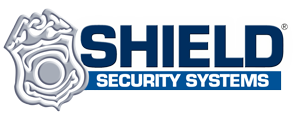A generation ago, a verbal agreement was enough to avoid a lawsuit in most business transactions. Unfortunately, today that is no longer the case. However, having the protection of signed documents in all sales transactions can literally save your business and help you avoid a lawsuit if a dispute arises.
One of the best ways to avoid a lawsuit today is to provide the courts with ample documentation, signed by you and the client, that detail every aspect of the relationship and outline was is expected of each party.
7 Important Forms for Sales Reps
Here are seven forms that are recommended and can prove to be particularly important legal protections for a business.
1) Proposal Sheet
This simple document should be provided to the client before the sale and lays out the framework for your relationship with the client. It should include a detailed list of products or services you propose to provide, as well as the proposed cost to the client. Though a proposal itself is non-binding, it does show you negotiated in good faith during the sales process.
(For tips on closing more service industry sales, view our related blog post here.)
2) Sales Agreement
Here is your contract with the client. The sales agreement clearly defines the transaction, and lists the final sales price for the products or services. Once the deal is signed and in place, you and the client are contractually obligated to each other until the contract is complete, or both parties mutually decide to end the arrangement.
3) Modification Agreement
Over time, you may find the need to alter your original sales agreement. You’ll want to have a signed modification agreement on file that notes any changes made to the last agreement. If you make a verbal commitment to modify an existing sales agreement, don’t start providing the new products or services until you have finalized the modification agreement in writing.
4) Sales and Marketing Report
Unlike the other reports on this list, the sales and marketing report is designed solely as an internal memo. The form is meant to be formal documentation for the company of your sale and it should track any marketing or sales activity that made it possible to capture the lead and ultimately close the deal.
5) Close Out and Inspection Report
When you sell a product or a service, it’s your job to ensure the client gets what he / she paid for. Depending on the nature of the product / service you provide, this report will contain different information. If you sell physical products, an inspection report states that you inspected at least a sampling of all the products (if the case of a large shipment), so you have an acceptable process of quality control.
For ongoing services or installation packages, this report documents your trip or trips to the site to check on client satisfaction and correct installation.
Industry-Specific Forms: Security Sales
6) Field Sketch Sheet
In the alarm and security industries, the field sketch sheet is a vital document to avoid a lawsuit. This document very clearly outlines the limits of the client’s property and establishes the boundaries where your service will operate. It is also a necessary tool of communication between the salesperson and the person handling the actual site security installation, allowing them to discuss the needed labor and equipment for the job.
7) Monitoring and / or Service Agreement
When you provide a service instead of a product, such as security monitoring, you’ll need a monitoring and service agreement. This form outlines what the service provides to the client — such as the length of time monitoring will be provided, the method of contact and the operational instructions for any equipment installed. You need to be as detailed as possible to avoid later disagreements about what exactly the client paid for versus what services were received.
Documentation Protects Business
To avoid a lawsuit that may damage your business, you must be able to present a portfolio of evidence that 1) shows your obligations to the client, 2) details how you planned to meet them and 3) documents the actions you took to fulfill those obligations.
By using the forms detailed above, all the documentation you need will be readily available to show a legal authority that your actions were in the interest of fulfilling the contract and were well within the confines of the agreement. Taking these steps to document the entire sales process will leave you in a strong position to defend your business, in or out of court.
In addition to using the proper forms in your sales process, our helpful e-book below gives an in-depth look at some of the best business models for small to medium companies.

